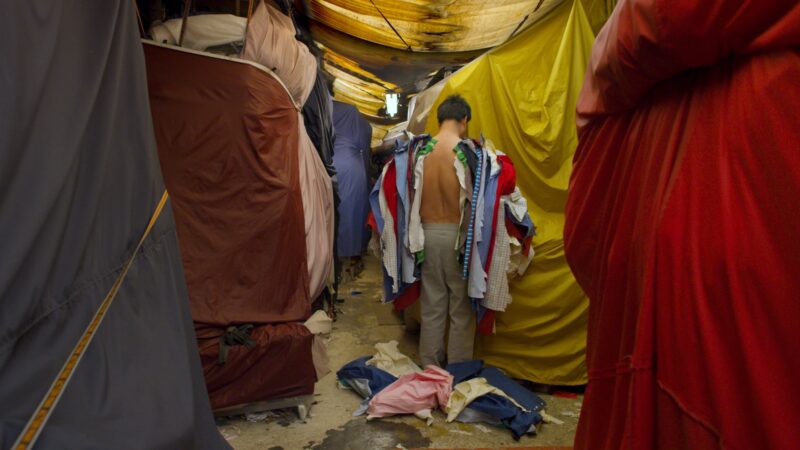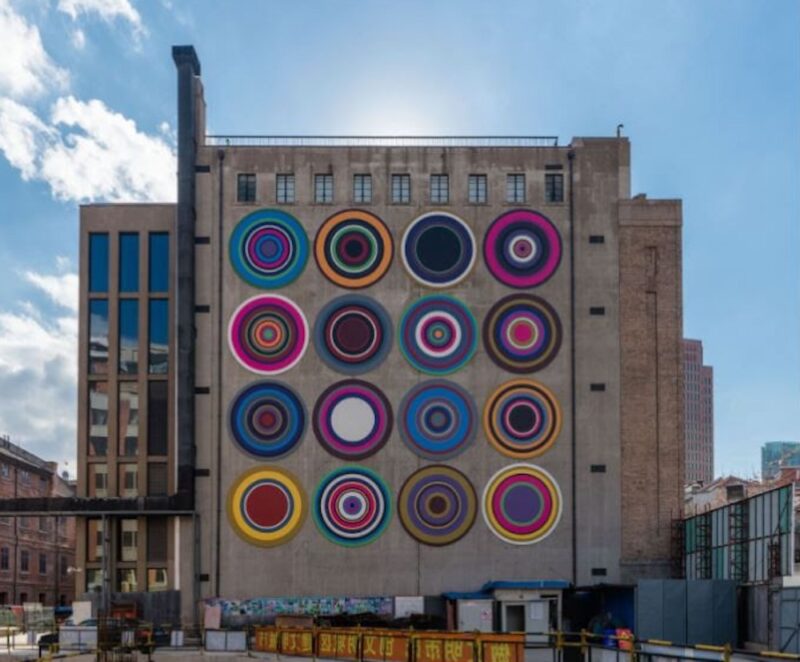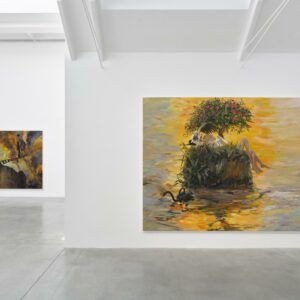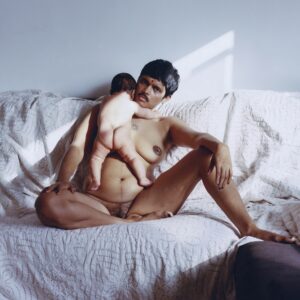Opening tomorrow Wednesday 13th February 2019, Hayward Gallery’s new exhibition presents the first major survey in the United Kingdom of one of today’s leading international artists: Kader Attia.
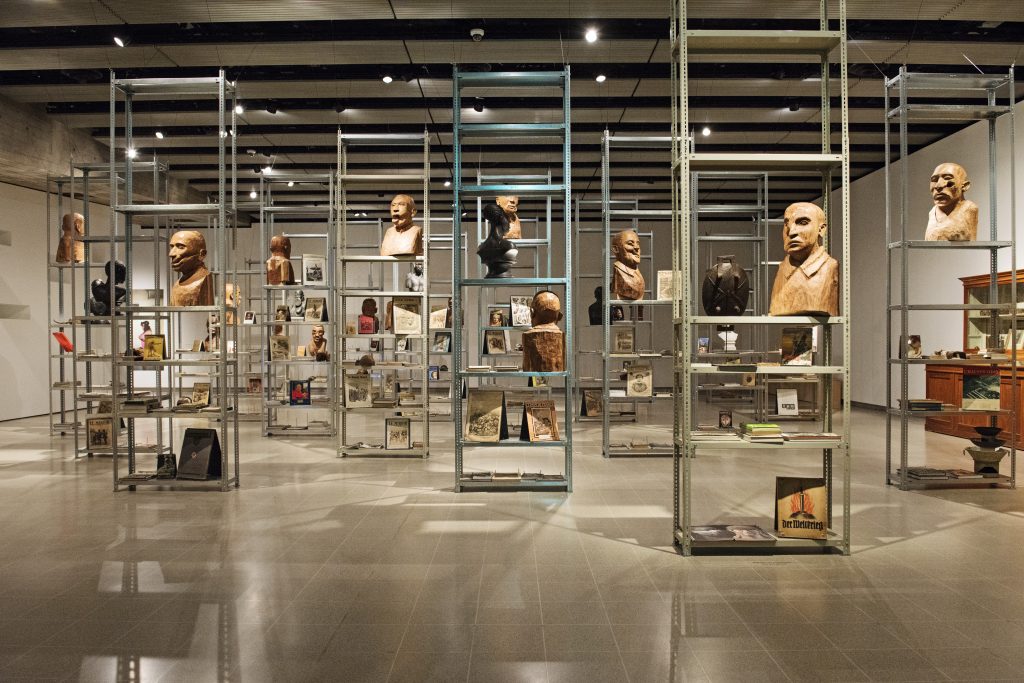
Installation view of The Repair from Occident to Extra-Occidental Cultures, Kader Attia The Museum of Emotion at Hayward Gallery. Copyright the artist, courtesy Hayward Gallery 2019. Photo Linda Nylind
The Museum of Emotion highlights several strands of Kader Attia’s thought-provoking and influential art from the past two decades. Offering a trenchant post-colonial perspective, Attia’s work often pushes the boundaries of traditional museum presentation whilst it raises questions about the hegemony of Western cultural models. Spanning a wide range of media, the works in this exhibition inventively explore the ways in which colonialism continues to shape how Western societies represent and engage with non-Western cultures.
At the core of the exhibition, a key group of artworks explore the idea of repair as both a physical and symbolic act, relating to individual as well as social trauma. These varied works draw on Attia’s extensive research and personal exchanges with an expansive range of practitioners, including traditional healers, neurologists, psychoanalysts, philosophers, ethno-musicologists, surgeons and traumatised individuals. Deeply affective and sometimes troubling, these artworks challenge our conventional ideas of wholeness and injury, authenticity and repair, belonging and otherness. They reflect the artist’s belief that ‘our world today cannot be understood without taking into account the psychological and emotional aspects of society’.
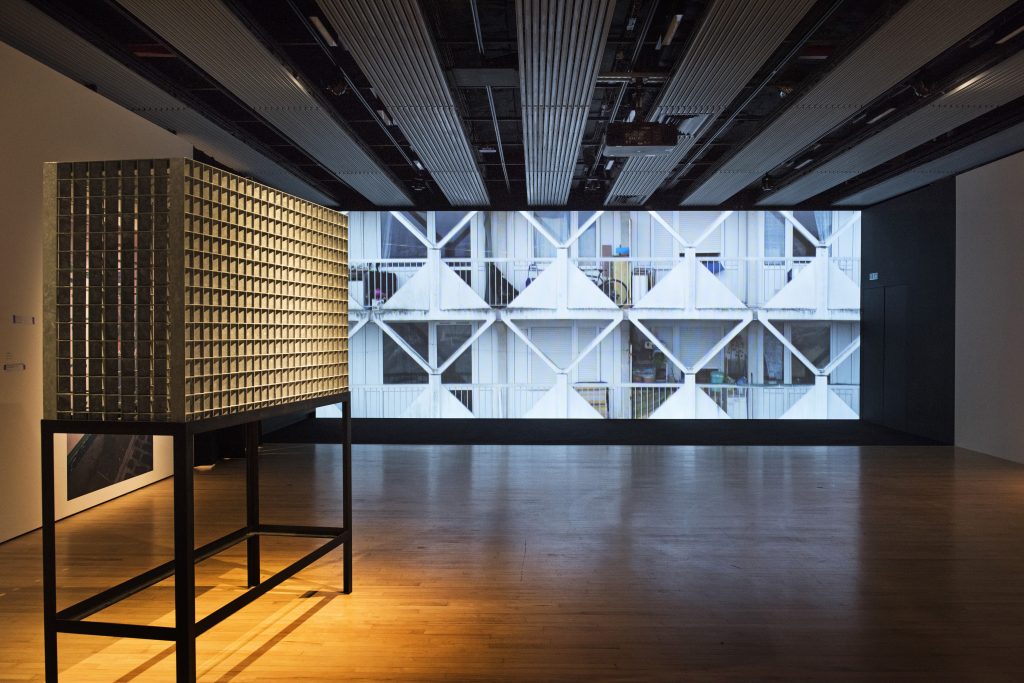
Installation view of Kader Attia_ The Museum of Emotion at Hayward Gallery. Copyright the artist, courtesy Hayward Gallery 2019. Photo_ Linda Nylind
Having grown up in Paris as the son of Algerian immigrants, Attia draws on the experience of living between two very distinct cultural environments as a significant point of departure. Exploring these roots, a series of early photographs, as well as a recent video projection (La Tour Robespierre, 2018) investigate the ‘inhuman modernism’ of the Parisian banlieues where the artist grew up, depicting the urban landscape of housing estates as a kind of
mise-en-abyme, a landscape of endless repetition. Through these works Attia subtly draws attention to the marginalising effects of modernist housing blocks that were built around principles of surveillance and control similar to those used to subdue colonial populations.
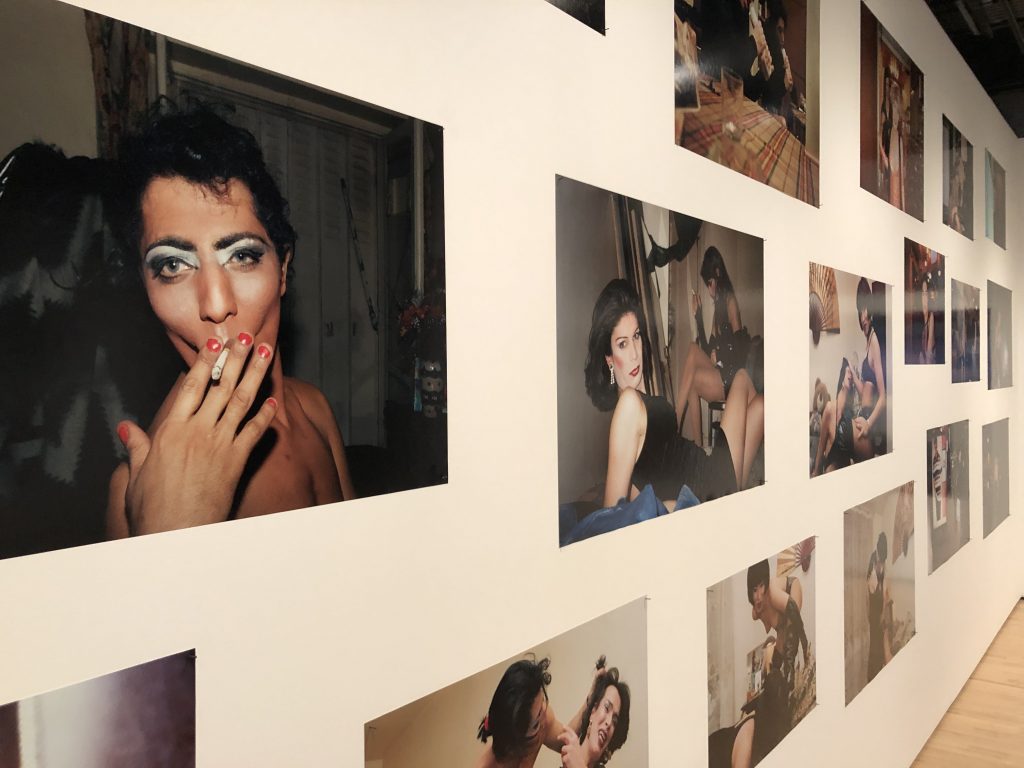
Installation view of Kader Attia_ The Museum of Emotion at Hayward Gallery. Copyright the artist, courtesy Hayward Gallery 2019
Attia has often focused his work on people who are marginalised or live on the periphery of society – whether transsexuals, illegal immigrants, or the mentally or physically disabled. His photographic series, La Piste d’atterrissage (Landing Strip) (2000–2002) offers psychologically complex and astonishingly intimate portraits of a community of transgender Algerian prostitutes in Paris, many of whom were illegal immigrants. The artist developed close relationships with members of this community whilst assisting them in their efforts to gain legal residence in France, and his photographs portray the full spectrum of their nexistence, from precarious work lives to everyday domestic life and moments of personal happiness.
For much of his career Attia has made art that critically explores the politics of Western museums. The Museum of Emotion brings together a key group of sculptures and theatrically-lit installations that ironically invoke classical ethnology and natural history museums in order to explore how such places have historically misrepresented artefacts from non-Western cultures whilst also presenting fantastical displays of animal life in the West’s former colonies. Several of these artworks, such as The Scream (2016) or Mirrors and Masks (2013), point to the still under-acknowledged influence of African culture on the trajectory of Western art history. A number of other sculptures link the museological impulse to classify and catalogue to an ethic of control and repression of emotion. In a series of vitrines titled Measure and Control (2013), Attia juxtaposes traditional African masks with stuffed animals and Western optical devices to reveal the profound gulf separating the way these different cultures understand and represent the natural world.
A group of major works in The Museum of Emotion highlight Attia’s longstanding preoccupation with the notion of repair. As opposed to a Western mode of repair which aims to erase all physical signs of an injury, Attia’s work articulates an approach to repair akin to non-Western cultures where marks left by traumatic events are accepted – or even visually emphasised – in order to acknowledge particular histories and their transformative impact. An arresting slideshow launches this investigation, juxtaposing images of African masks and objects bearing signs of physical repair with images of disfigured soldiers from World War I, known in France as the Gueules Cassées, or ‘Broken Faces’, who were treated to early rudimentary plastic surgery procedures. Attia also portrays these mutilated faces in a number of large busts, carved from wood or marble, that suggest a very different kind of commemorative monument for veterans of war.
Attia’s interest in the legacies of violent conflict is given powerful form in his multi-channel video installation Shifting Borders (2018). Comprising three separate videos as well as sculptures, this installation explores the therapeutic role played by spiritual and shamanistic practices in non-Western societies through a series of revelatory and haunting interviews with healers and survivors of state violence and war in South Korea and Vietnam.
Bringing the theme of repair to the present day, the single channel video Reflecting Memory (2016) – for which Attia won the prestigious Marcel Duchamp Prize – explores the specific trauma of ‘phantom limb’ syndrome. Through the combination of poetic imagery and incisive interviews, this compelling video draws a link between a lost part of the body and the trauma created when part of the larger social body is cut off or destroyed. Showing in the Hayward’s HENI Project Space, Reflecting Memory will be free to enter for both exhibition ticket holders and the general public.
Exploring the shared and ambiguous territory of emotion, the recent wall-based work The Field of Emotion (2018) juxtaposes images of male politicians and dictators – including Hitler, Stalin and George H. W. Bush – with famous female singers known for their emotional or affective delivery, including Aretha Franklin and Maria Callas. By bringing together these diverse images, Attia asks us to consider the ambivalent role of emotion in all areas of contemporary life, as well as the way that it might be mobilised – for better or worse – by performers and demagogues alike. The work makes an argument for the capacity of art to provide moments of catharsis and to purge some of the powerful negative emotions that are stirred up in times of crisis; to the artist, this is the “only way of resisting radical and charismatic politicians’ efforts to galvanise crowds to control them for worst”.
Ralph Rugoff, Director, Hayward Gallery said:
“Kader Attia is one of the most interesting and cogent artists practising today. Attia expands the boundaries of what it means to be an artist working today by acting as a savvy historian, an archaeologist, an anthropologist, ethnologist and sociopolitical commentator. Exploring timely subjects such as migration, gender, border politics and the lingering legacies of Western colonialism, Attia is making an invaluable contribution at a time when many societies are increasing polarised. Moving and challenging, his art illuminates the possibilities of a new idea of repair.”
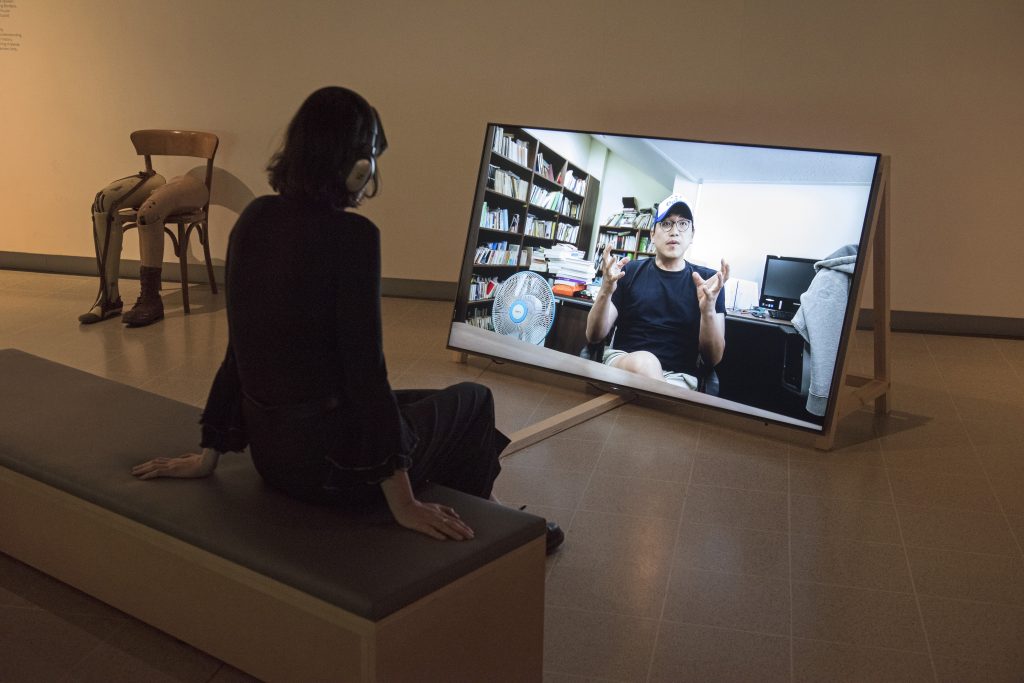
Installation view of Shifting Borders, Kader Attia_ The Museum of Emotion at Hayward Gallery. Copyright the artist, courtesy Hayward Gallery 2019. Photo_ Linda Nylind
Kader Attia: The Museum of Emotion 13th February–6th May 2019 Hayward Gallery Lower Galleries
Kader Attia: Reflecting Memory 13 February–6 May 2019 HENI Project Space southbankcentre.co.uk/hayward-gallery
About Kader Attia
Kader Attia (b. 1970, France) grew up in Paris and in Algeria. He lives and works in Berlin and Paris. Preceding his studies at the École Supérieure des Arts Appliqués Duperré and the École Nationale Supérieure des Arts Décoratifs in Paris, and at Escola Massana, Centre d’Art i Disseny in Barcelona, he spent several years in Congo and in South America. Kader Attia’s work recently has been on display at the 12th Shanghai Biennial in China, 12th Gwangju Biennial in Korea and Fundacio Joan Miro in Spain. Past solo exhibitions include Les racines poussent aussi dans le béton, Musée d’art contemporain du Val-de-Marne MACVAL, Vitry-sur-Seine; The Field of Emotion, the Power Plant, Toronto; Repairing the Invisible at SMAK, Ghent; Kader Attia, Museum of Contemporary Art, Sydney; Sacrifice and Harmony, Museum für Moderne Kunst, Frankfurt; The Injuries are Here, Musée Cantonal des Beaux Arts de Lausanne; Contre Nature, Beirut Art Center; Continuum of Repair: The Light of Jacob’s Ladder, Whitechapel Gallery, London; Repair. 5 Acts, KW Institute for Contemporary Art, Berlin. Kader Attia took part in the 12th Manifesta, Palermo; the 57th Venice Biennale, dOCUMENTA(13) in Kassel, as well as group shows at MoMA, New York; Tate Modern, London; Centre Pompidou, Paris and The Solomon R. Guggenheim Museum, New York. In 2016, Kader Attia was awarded the Marcel Duchamp Prize, followed by the Joan Miró Prize of the Miró Foundation, Barcelona, and the Yanghyun Art Prize, Seoul, in 2017.

